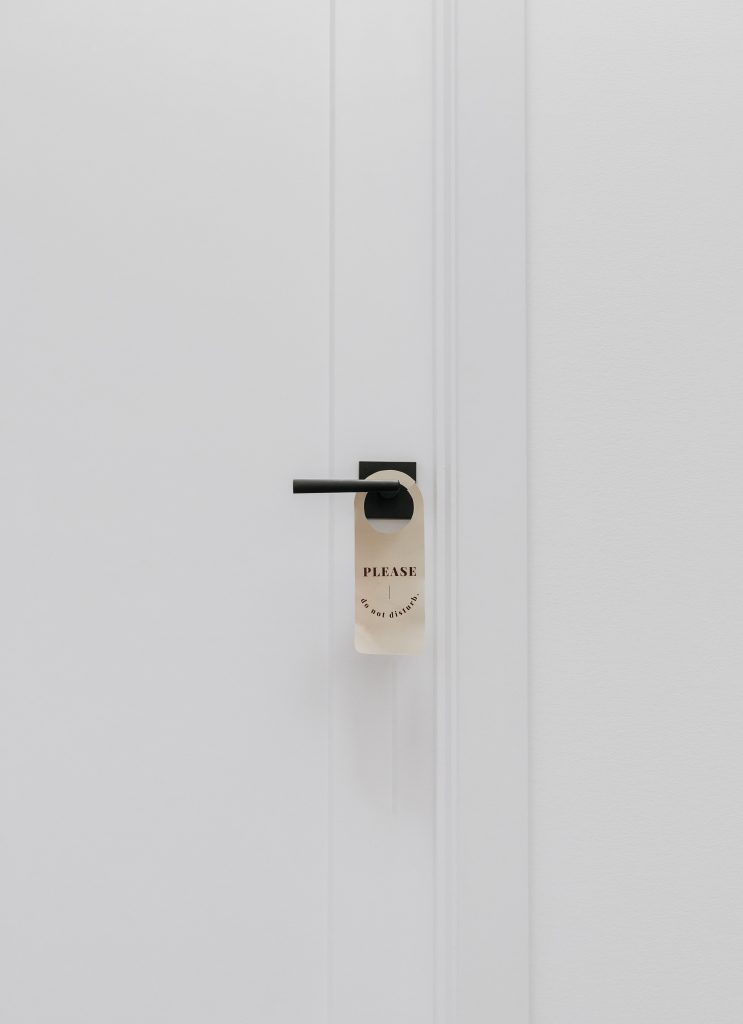How Unhealthy Attachments Affect Our Lives

Unhealthy attachments often look like dependence or reliance on another person. They can also be unhealthy attachments to a task or an object that avoids or distracts from something different. We fill our time and expend our energy on work or cleaning the house so that we don’t have to think about that one thing that’s hurting or breaking our hearts. We form unhealthy attachments to things that ease discomfort. At times, it can be too hard to deal with certain things; so, we ease the hurt by attaching those emotions to something that often feels more positive or productive. But how long can an “unhealthy attachment” last? How long can we sustain ourselves on inauthentic energy?
Breaking through unhealthy attachments requires arriving at complex understandings. You must recognize how this attachment is unhealthy, which leads you to acknowledge what the attachment is compensating for. This is a difficult task to achieve because the process usually involves both trauma and healing. The trauma being what you’re avoiding and the healing being the process that follows. We create these unhealthy attachments because we feel emotionally unsupported. We fear treading through the emotions, so we cover them up or bury them to avoid conflict or self-reflection. And it’s usually not until after the unhealthy attachment has changed our lives or changed our values that we recognize what it was compensating.
Recognizing Unhealthy Attachments
We’ve established what it means to live a genuinely intentional life. Every day you work to better yourself, heal, and move towards the highest and most enlightened versions of ourselves. An integral part of this process is developing your self-awareness: to recognize when people, things, and even your behavior or actions, are no longer serving you. This self-awareness is always the first step in creating meaningful change in your life. It’s about knowing when to shift perspective and see what may be dragging you down rather than lifting you up. Unhealthy attachments have their own unique ability to redact from our happiness because we’re usually in denial that the attachment is unhealthy. So, recognizing them first requires a step back, or even a birds-eye view, of the situation.
Balance
Most people desire balance in their lives, an even give-and-take that feels comfortable. So when things become unbalanced, we tend to over-compensate in one area to validate that need for balance, which can create an attachment. For example, maybe your relationship with your significant other has become strained. To compensate for that imbalance, you attach yourself, your energy, and your time to work. This fulfills your need for balance and eases the tension you feel elsewhere. Once that (inauthentic, unsustainable) balance is created, you’re able to validate your behavior in overworking yourself. This form of unhealthy attachment validates our fear of addressing the “real” issue. Fear clings to this type of energy and validates the behavior because it feels safer. But how is inauthentic energy really serving you? We’ve tricked our minds into thinking we’ve balanced the scales, when in fact, they’re tipping further and further to imbalance.
Validation
As human beings, we naturally seek approval in many things that we do. In many ways, it’s the natural order of things. We like to receive approval from our bosses to know we’re doing a good job at work. We like to hear words of affirmation from our friends and partners to know we’re filling their cup as they fill ours. But what happens when that approval turns into needing validation. Even when you know you’re giving it your all, the words of affirmation turn into validation, and it becomes an unhealthy attachment to require approval for your actions. This need for validation will often stem from feeling unworthy or undeserving in one area of your life. Perhaps a trauma that has gone unhealed or unaddressed suddenly resurfaces, and you turn to outside validation to continue pushing that wound deeper.
This denial of emotions creates an unhealthy attachment style for validation from others rather than simply validating yourself. Self-confidence (or a lack thereof) is often why we form unhealthy attachment styles. Insecurities are a natural imbalance everyone feels; we turn to others to validate insecurity rather than addressing it ourselves. This also helps in balancing the scales, but again, in an inauthentic way. So, what does this inauthenticity do to us? It’s a pseudo balance that helps to facilitate a facade of happiness, when in fact, we’re simply creating an unhealthy attachment to whatever it is that is in need of balance.
Inauthentic Energy
Living in inauthentic energy— rather, surviving in this energy—is one of the easiest ways to tear down the intentional life you’re working to build. And unfortunately, there isn’t an easy way to just detach or move on from unhealthy attachments. I’m sure it won’t come as a shock to hear that to let go of unhealthy attachments, we simply have to face them head-on, with complete honesty to ourselves. First, recognize what it is that is “unhealthy.” Second, address what it’s actually compensating for or validating. Third, shift the focus from the unhealthy attachment and the fake emotional balance it’s created to the emotion you’re denying. Four, address the actual imbalance. This is how we can step back into authentic energy and heal whatever we were compensating for in the first place.
To not address these attachments or inauthentic energy not only hurts you and your highest self, but has the potential to create distance and/or resentment. Are you getting too attached to a person? You’re likely going to push them away. Are you getting too attached to work? You’re likely to resent it as it begins to consume your life.
It’s always okay to need to put off feelings or emotions to another time when it’s simply just too hard. But at some point, they always need to be addressed. Without doing so, we’re only working to hurt ourselves and make the work more difficult in the long run.